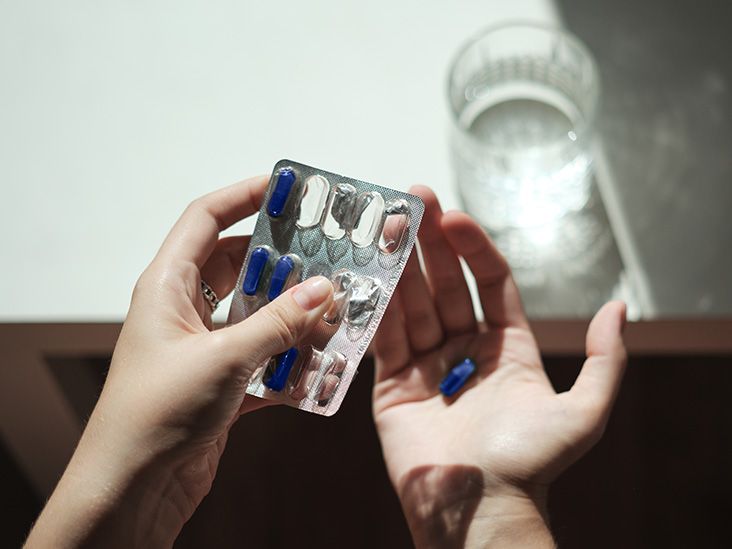A dopamine deficiency may have links to several medical conditions, including depression, Parkinson’s disease, and attention deficit hyperactivity disorder (ADHD).
Dopamine is a neurotransmitter, a chemical that sends signals between nerves in the body. The right balance of dopamine is important for a person’s physical and mental well-being.
It plays a part in controlling the movements a person makes, as well as their emotional responses. It also influences include sleep, memory, learning, and concentration.
Dopamine deficiency may occur due to a drop in the amount of dopamine the body makes or an issue with dopamine receptors in the brain.

Experts have linked various health conditions to lower dopamine activity in the brain, including the following:
Parkinson’s disease
Parkinson’s disease is a degenerative disorder of the central nervous system. It can cause tremors, muscle stiffness, and problems with balance and coordination.
A
ADHD
ADHD is a neurodevelopmental disorder that begins in childhood but can continue to adulthood.
People with ADHD may have difficulty focusing, paying attention, or managing impulsive behavior. Experts do not know exactly what causes ADHD, but some think changes in dopamine activity may contribute.
ADHD
In animal studies, blocking dopamine transporters and receivers also helps increase the amount of available dopamine and is associated with lower hyperactivity.
Drug misuse
Drug misuse may affect dopamine levels. According to the National Institute on Drug Abuse, drugs interfere with neurotransmitters in the brain, and some may mimic certain neurotransmitters.
Drugs produce large surges of dopamine, which reinforces the association between drug use and pleasurable feelings.
If a person continues using addictive drugs, their dopamine receptors
Diet and obesity
A 2020 research report article suggests that a low protein diet may lead to decreased dopamine levels in rats, among other neurotransmitter effects.
A 2021 review suggests that obesity and saturated fat may lead to inflammation and insulin resistance. This may decrease dopamine creation and the capacity for dopamine release and reuptake.
The symptoms of low dopamine depend on the underlying cause. For example, a person with Parkinson’s disease may experience:
- tremors
- slow or effortful movements, known as bradykinesia
- shuffling or interrupted steps
- postural instability or problems with coordination and balance
Does dopamine deficiency cause mental health conditions?
Dopamine dysfunction has links to numerous mental health disorders, including
However, researchers are still learning dopamine’s role in these conditions. It is unclear if low dopamine itself is the cause or if something else leads to dopamine dysregulation in different regions of the brain.
Other neurotransmitters may also be involved in the development of these conditions.
There is no reliable way to directly measure the levels of dopamine in a person’s brain, but there are some indirect ways.
Researchers can measure the density of dopamine transporters that correlate positively with nerve cells that use dopamine. This test involves injecting a radioactive material that binds to dopamine transporters, which scientists can measure using a camera.
However, doctors do not use this test to diagnose conditions. If a person has signs or symptoms of a condition that has links with low dopamine, they will test for that specific condition instead.
Treatment of dopamine deficiency depends on the underlying cause.
Lifestyle and diet changes
Exercising can help boost dopamine levels in the body. Regular walks, swimming, or cycling may help.
Dietary changes may also affect dopamine. Although eating a high fat diet initially activates the dopamine system, over time this type of diet may lower dopamine signaling. However, early animal studies suggest unsaturated fat may not have the same effect.
Consuming foods that contain the amino acid l-tyrosine may help the body
- chicken
- beef
- eggs
- beans
- dairy
- whole grains
Bananas, plantains, and avocados are
However, experts do not yet know if dietary dopamine intake leads to changes in the brain or other bodily systems. It is also unclear whether food sources of dopamine affect dopamine-related disorders or symptoms. More research is necessary.
Supplements
Some supplements may help increase dopamine levels, such as:
- Vitamin D3: A
small 2019 studyTrusted Source of 86 children with ADHD found that supplementing with vitamin D3 daily increased dopamine levels. The children had 2,000 IU of vitamin D3 daily. However, the study does not report effects on the children’s well-being or ability to focus. - Velvet bean: This tropical bean is high in levodopa, a substance the brain needs to produce dopamine. It is also popular in traditional medicine as a treatment for Parkinson’s disease.
- Psychobiotics: This new concept involves using probiotics and prebiotics to treat mental health conditions. Certain species of bacteria may increase dopamine levels in the gut.
The research for all of these supplements as a means of increasing dopamine is still in the early stages. It is unclear if any of them can improve or treat any dopamine-related medical condition.
Be aware that substances that alter brain chemistry can have unwanted side effects and may interact with other medications. People should always speak with a doctor before introducing a new supplement.
Medications
Ropinirole and pramipexole can help neural receptors use dopamine
Doctors may prescribe these drugs to treat Parkinson’s disease or disorders that cause unwanted movement, such as restless legs syndrome.
Is dopamine deficiency genetic?
Genes may be involved in certain conditions that researchers associate with dopamine dysfunction. For example, a person may have a
Can therapy help with dopamine deficiency?
Therapy may be a suitable treatment for some conditions researchers associate with low dopamine levels. For example, psychotherapy can be an effective part of treatment for
Is there a cure for dopamine deficiency?
The treatment for dopamine deficiency may depend on the underlying condition that healthcare professionals associate it with.
Decreased dopamine activity may play a role in several conditions, including ADHD, addiction, and depression. The loss of dopamine-producing cells also causes Parkinson’s disease.
Researchers are still learning how it affects people and how to address it. Treatment for low dopamine levels may depend on the underlying cause of the deficiency.
People should speak with a doctor if they are concerned about their dopamine levels or have questions about how to improve them.


